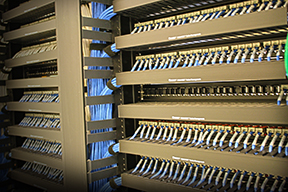Almost every modern organization develops a mission statement, which is a firm declaration articulating the very reason for their existence. A common mission statement for a hospital may read like this: "The mission of Generic Memorial Hospital is to provide quality health services to restore health as swiftly, safely, and humanely as it can be done, and to positively impact people and our community..."
 Imagine how this mission would be affected if the network or data center housing patient billing and medical information were disabled due to a fire. Damage to the physical facility could go beyond the destruction done by the actual fire. Sensitive technology like servers are highly susceptible to smoke, data storage media is very sensitive to heat, and even the process of the fire department or sprinklers extinguishing a fire can cause more damage than the fire itself. Normal operations would be significantly impaired.
Imagine how this mission would be affected if the network or data center housing patient billing and medical information were disabled due to a fire. Damage to the physical facility could go beyond the destruction done by the actual fire. Sensitive technology like servers are highly susceptible to smoke, data storage media is very sensitive to heat, and even the process of the fire department or sprinklers extinguishing a fire can cause more damage than the fire itself. Normal operations would be significantly impaired. Financially speaking, what would every lost minute of downtime be worth to a hospital? Billing would come to a halt and insurance and Medicare & Medicaid claims would be left unprocessed. Incoming patient information would be highly delayed, if not lost or forgotten. Employees would be unable to schedule surgeries or transmit x-ray files and MRI scans. Doctors would be unable to access medical histories and prescriptions. What is the level of financial impact this hypothetical event has on this business? It’s possibly devastating.
Not only would normal business operations be compromised, but patients couldn't have surgery and healthcare personnel couldn't do their job. Does this hospital’s mission hinge upon the data center functioning correctly?
Just like this hospital data center, mission critical properly refers to processes and technology where failure produces catastrophic consequences. These consequences could include great personal injury, death, crippling facility damage, or severe financial costs that jeopardize the survival of that organization. If the hospital experiences major downtime, that event would extensively hinder the hospital's business efforts, not to mention deny critical and sometimes lifesaving services to people in need. That brings up a whole new category of problems for the General Counsel.
Consider this: many organizations are dependent on others for their own services and on creating a stable business environment.
In our example, the hospital supports other health-related businesses within its region. Experiencing a loss of services could have a ripple effect, thus widening the economic impact of the event.
Most companies understand the importance of their core business and its key components, but many are left unprepared for disasters and need to plan for recovery. Ready.gov is an excellent place to become informed and make a plan for protecting your business.





